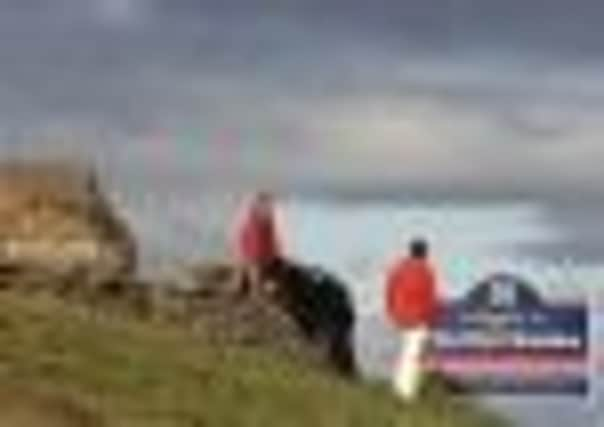Scotland urged to refocus on genealogy tourism


The potential of so-called ancestral tourism has been outlined in a report by consultants TNS, which estimates a potential market of 50 million people of Scottish ancestry.
But services need to be improved if Scotland is to cash in, including promoting existing research facilities, specialist tour operators and the creation of budget “genealogy packages”.
Advertisement
Hide AdVisitScotland asked TNS to assess the market and plan for an expected influx ahead of the 2014 Year of Homecoming, when Scotland will also host the Commonwealth Games in Glasgow and golf’s Ryder Cup at Gleneagles.


Malcolm Roughead, VisitScotland’s chief executive, said: “We need to do all we can to make sure every visitor will have the experience of a lifetime. In our advertising campaigns we will be inviting people from all over the globe to come home and walk in the footsteps of their ancestors.”
The study found ancestral tourism in Scotland is worth more than £400 million a year but that the market still had untapped potential. The £2.4bn figure is based on VisitScotland converting 20 per cent of the 50 million people with Scots blood around the world into potential visitors.
Of these, 4.3 million are said to be already interested in taking on planning a holiday in the next two years while more than five million are waiting to be attracted from key areas.
Of the 50 million, the Scottish Government estimates 9.4 million are American, 4.7 million Canadian and 1.5 million Australian.
One of those visitors is Bev Clarke, a librarian from Tasmania, who started researching her roots in 1989 when she traced her ancestors back to her great-grandfather Alexander Coutts, who emigrated to Australia from Scotland. It took another 20 years for Clarke to return to the research project online, which eventually led her back another three generations to the birth of Alexander Ross in Kincardine, Aberdeenshire. He became a schoolmaster and poet in Lochlee, Angus, and was credited with influencing Robert Burns.
Advertisement
Hide AdWhen she managed to make her first visit to Scotland last year, Clarke headed to the ScotlandsPeople Centre in Edinburgh, then to the Aberdeen City Library.
She returned earlier this year to do more research. She said: “I was determined not to duplicate last year’s visits, but to visit places associated with my fairy-tale pedigree and take time to carry out more research both in Edinburgh and in Aberdeen.”
Advertisement
Hide AdVisitScotland’s next big campaign is to be rolled out within weeks to persuade Scots to discover their homeland in 2013 – the Scottish Government’s “Year of Natural Scotland”.
The National Trust for Scotland is one of the leading beneficiaries of ancestral tourism with top sites such as Falkland Palace in Fife, Craigievar Castle, Aberdeenshire, and Culzean Castle, Ayrshire.
A spokesman said: “Day in and day out we welcome people to our properties from near and far who want to make a personal connection with their Scottish heritage.
“There are the obvious examples, such as the grand, aristocratic family seats at Castle Fraser and Haddo House that we care for on behalf of tens of thousands of visitors. But there are also the more sombre experiences of Glencoe and Culloden where the course of many clan and family histories, along with the nation’s destiny, were changed forever.
“However, we cannot forget that even so-called modest properties, such as the Tenement House in Glasgow and David Livingstone’s birthplace in Blantyre, show us the now almost unimaginable conditions that the ancestors of the majority of Scots or people of Scots descent would have experienced not that long ago.”
Dr Bruce Durie, chairman of the Ancestral Tourism Steering Group for Scotland, said: “Scotland is absolutely the best place to research family history – we have so many records, and so much online, that it’s a genealogist’s dream compared with other places.
Advertisement
Hide Ad“However, while a lot of information is centrally-held – mainly in Edinburgh – there’s a great deal locally as well. The challenge is for all the components of ancestral tourism to get together and make a decent, joined-up destination package for ancestral visitors.”
Twitter: @brianjaffa